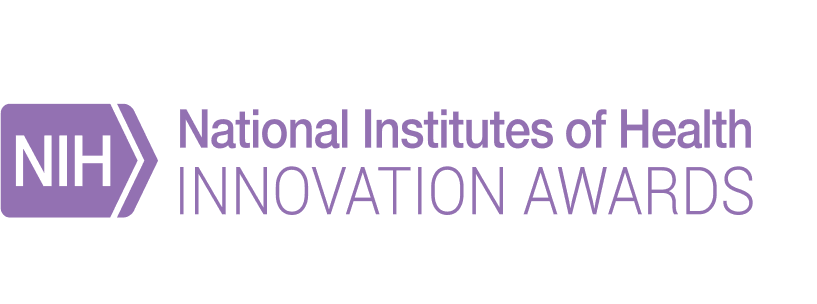About AiCure Predictive Insights. Personalized Care.
AICure is an AI-driven medication adherence and patient engagement platform built for the life sciences industry. We help ensure the right patient takes the right medication at the right time, while delivering objective, real-world behavioral data that improves clinical trials, accelerates drug development, and enhances outcomes in the real world.
Founded on the belief that artificial intelligence can fundamentally transform how patients are understood and supported, AICure turns real-world behavior into actionable clinical insight across the drug development and treatment lifecycle.
Vision Statement
To improve personalized care for patients globally by empowering remote digital and targeted therapies.
Mission Statement
At AiCure, we put personalized care into the hands of scientists, healthcare professionals and patients through advanced computer vision and machine learning software, empowering unbiased and objective digital diagnoses and predictive insights to optimize care.
Who We Serve
AiCure is the patient-centric eClinical trials management platform company that empowers life science and healthcare organizations to unlock valuable unbiased, computer-vision driven insights to optimize personalized care.
Awards




Our Story
AICure was created to address one of healthcare’s most persistent challenges: medication non-adherence. Early on, our team recognized that without objective insight into patient behavior, clinical research and treatment decisions would remain incomplete.
Through early innovation supported by NIH grants and multiple patent filings, AICure developed an AI-native platform that applies computer vision and behavioral analytics to objectively measure and improve medication adherence. Clinical deployments demonstrated that AI can increase adherence, rapidly detect nonadherence, and predict future risk, strengthening collaboration between patients and clinical teams while improving data quality.
Today, AICure supports clinical trials and prescribed drug therapies globally, helping life sciences organizations reduce risk, protect data integrity, and unlock the full clinical and commercial potential of their treatments.
The Challenge We Solve
Medication non-adherence remains a major barrier to effective care and efficient clinical research:
More than 50% of patients on long-term medications do not take them as prescribed
Non-adherence extends clinical trial timelines and increases cost and risk
Poor adherence compromises data integrity and limits real-world treatment effectiveness
Life sciences organizations lack real-time visibility into patient behavior and engagement
AICure was built to make adherence measurable, verifiable, and actionable.
Our Platform
AICure’s AI-native mobile platform improves medication adherence and patient engagement through:
Clinician-defined medication reminders delivered directly to patients
AI-powered ingestion verification to confirm the right patient takes the right medication at the right time
Computer vision and physical and behavioral biomarkers captured at the moment of dosing
Real-time behavioral data and AI analytics that generate differentiated Real-World Evidence
Our purpose-built, white-label architecture enables pharmaceutical, biotechnology, and CRO partners to deploy branded solutions while accessing real-time patient insights that support clinical operations, Health Economics and Outcomes Research (HEOR), and commercial decision-making.
Who We Serve
AICure partners across the life sciences ecosystem, including:
Pharmaceutical companies
Biotechnology companies
Contract research organizations (CROs)
Clinical trial sites and investigators
Our technology helps partners improve trial efficiency, strengthen data integrity, deepen patient insights, and accelerate the delivery of life-changing therapies.
Proof of Impact
AICure’s platform has been validated through global, real-world deployment:
Over 10 years of AI-powered medication adherence and ingestion verification
Deployments across 2,200+ sites, 46+ countries, and 45 languages
1.5 million+ verified doses
Trusted by 7 of the top 10 global pharmaceutical companies
90+ issued and pending patents, representing one of the strongest IP portfolios in digital adherence
Leadership
AICure is led by Chief Executive Officer Sabina Chadha, who brings more than 20 years of experience scaling healthcare and enterprise technology companies. Prior to AICure, Sabina held senior leadership roles at InVita Healthcare Technologies, Management Health Solutions, and SmartLinx, where she led revenue growth, strategic partnerships, and organizational expansion.
Known for her people-first leadership style and focus on measurable outcomes, Sabina is guiding AICure’s next phase of growth while advancing the responsible use of AI across the life sciences industry.
Commitment to Responsible AI
Inclusion, diversity, and responsibility are foundational to AICure’s culture and technology. We:
Design AI models using diverse and representative datasets
Prioritize fairness, transparency, and accountability in development
Apply inclusive hiring and global talent practices
Support small and minority-owned business partners
We believe advanced technology must work for every patient.
Looking Ahead
With a proven, scalable AI platform and a growing body of real-world evidence, AICure is positioned at the intersection of artificial intelligence, digital health, and patient engagement. We continue to partner with life sciences leaders to make medication adherence intelligence a standard across clinical development and commercial therapy management—driving better data, better decisions, and better outcomes for patients worldwide.